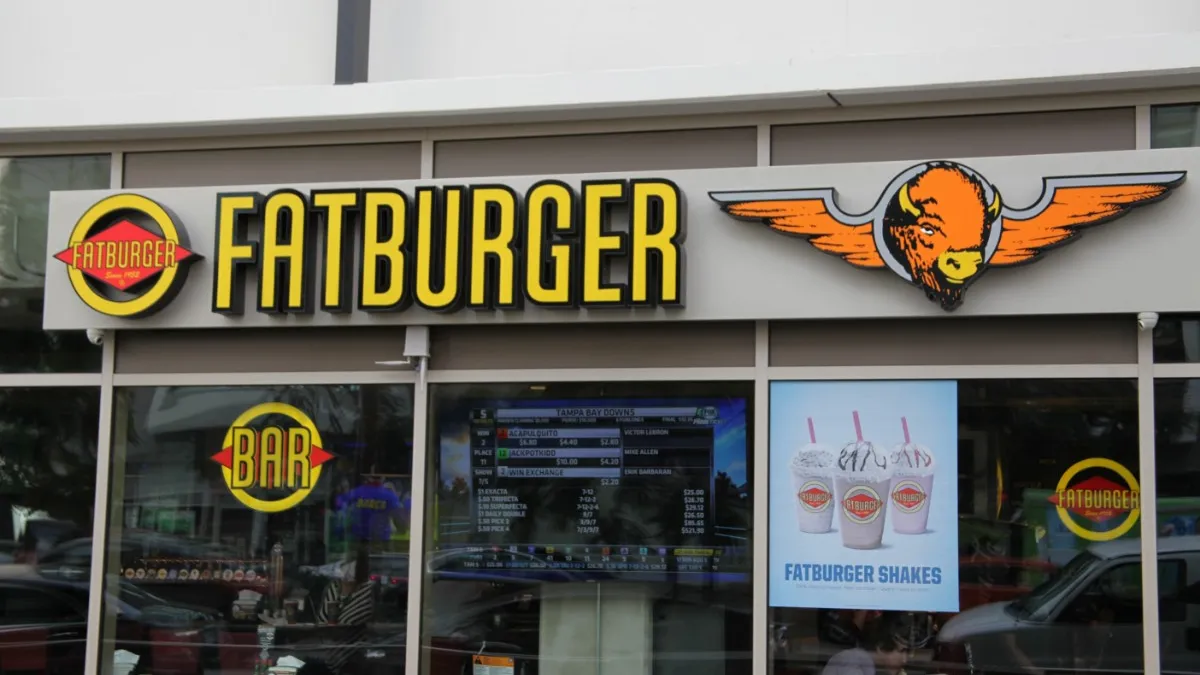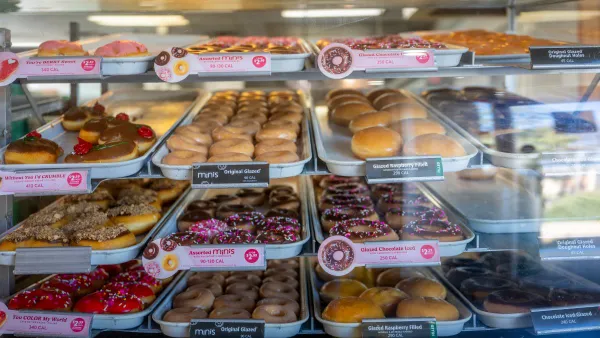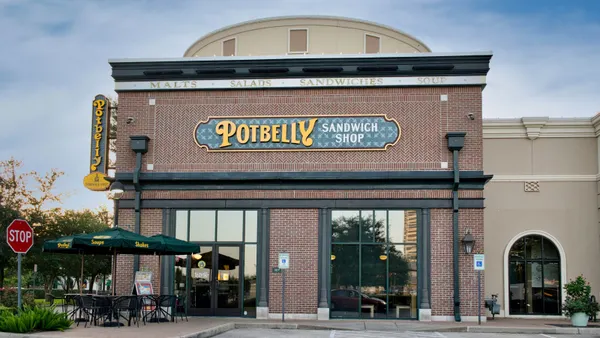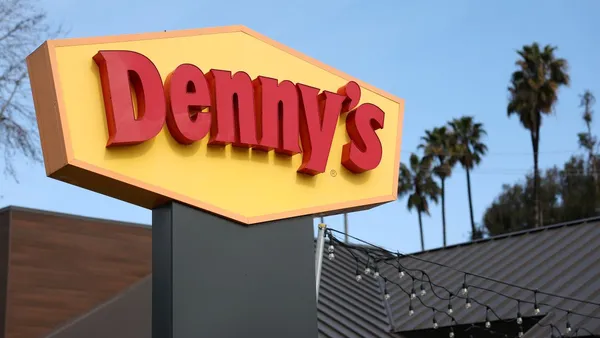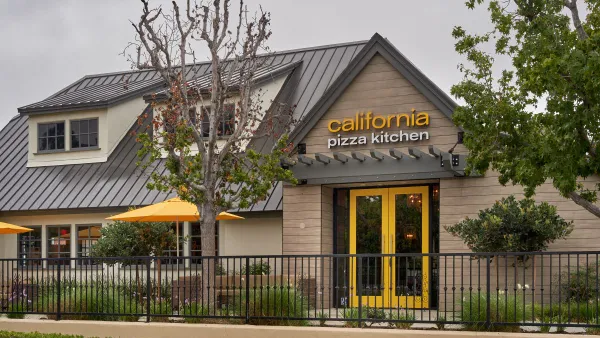Dive Brief:
- Fat Brands has entered into an agreement to combine with Fog Cutter Capital Group, the company’s controlling stockholder, according to a press release. The restaurant company says the merger is expected to provide it with additional financial flexibility and a simplified corporate structure.
- FCCG has more than $100 million in net operating loss carryforwards, which could only be assumed by Fat Brands if the firm owned at least 80% of the company, Andy Wiederhorn, president and CEO of Fat Brands said in the press release. NOLs can be used to spread losses over future years, reducing tax liability. Through the business combination, these NOLs will be internalized at Fat Brands, providing better flexibility and optionality with its capital structure, he said.
- The merger agreement comes just months after Fat Brands acquired full-service chain Johnny Rockets and shows that even though merger activity had all but disappeared during the early days of the pandemic, it is starting to accelerate as companies look to 2021.
Dive Insight:
The merger with Fog Cutter Capital Group was in the works before the pandemic struck and Wiederhorn said in 2019 that he expected it to be completed this year. It follows a 2017 tax sharing agreement it made with the firm in which FCCG would file consolidated federal and state income tax returns with the company and its subsidiaries, Wiederhorn said during the company's Q1 2019 earnings call. Fat Brands then pays FCCG what its current tax liabilities would have been if it filed a separate return.
But as Fat Brands has become a more aggressive buyer, it has needed to adjust this strategy to make sure it can keep buying companies. When it buys a company, Fat Brands typically pays cash and some sort of seller note or preferred stock, Wiederhorn said during the company's Q2 2020 earnings call. However, the company can't issue stock today because it would "mess up the ownership structure" of FCCG, which would make it more difficult to use the NOLs to shelter tax liabilities, he said.
Through the merger, the NOLs will fall under Fat Brands' entity structure and the 80% ownership requirement will disappear, he said.
"That's very important because it will allow us to make acquisitions using common stock, to issue more common stock to raise capital … and we still get the full benefit of the NOL," he said.
Fat Brands has been an active acquirer of restaurant companies over the past two years, a key growth strategy for the company. After it finalized its Johnny Rockets acquisition, it grew from having over 375 franchised units to more than 700 franchised and company owned restaurants. Also with Johnny Rockets, the company expects it can generate two times its 2019 EBITDA of $7.7 million in a post-pandemic environment, Wiederhorn said in the Friday press release. In 2019, Fat Brands acquired Elevation Burger a year after it closed its deal with Yalla Mediterranean.
Fat Brands isn't the only restaurant company that has had its eye on expanding its restaurant platform. Inspire Brands acquired Dunkin' Brands in October for over $11 billion, in what was easily the biggest restaurant deal of 2020, just a year after it added Jimmy John's and two years after it added Sonic to its platform. Even though M&A activity has slowed because of the pandemic, Fat Brands and Inspire Brands show that they are still hungry for additional restaurants that can round out their growing portfolios.


